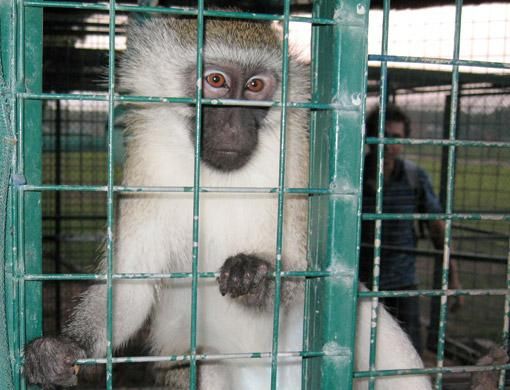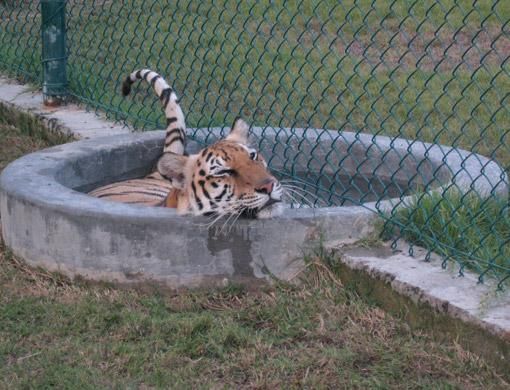Abu Dhabi: Special arrangements have been made at the new Abu Dhabi Wildlife Centre to protect animals from the scorching summer heat.
At this time of year temperatures in Abu Dhabi can rise to a searing 49 degrees.
Video: Lion breeder Ronel Smuts takes you around Abu Dhabi Wildlife Centre
The new wildlife centre has 36 open-air enclosures, four of which are exclusively for large cats. They have been equipped with specially designed air-conditioned rooms.
Two adult crocodiles share a pond, where they spend most of their time during the summer, but they also have umbrellas where they can rest in the shade. These reptiles have two air-conditioned rooms to themselves.
The centre aims to create a comfortable home for the animals. "We want to make them feel free as if they are in the wild," said Ronel Smuts, manager of the centre. The centre has been breeding and managing wild animals for the past ten years, providing a safe haven for the orphaned and the sick.
According to Smuts, she prefers not to sedate the animals when they are being transported to the new centre. "Sedating an animal is the easiest thing to do, but we prefer to do it the humane way and trap them in trucks using food, while they are alert. Most of these animals had been mistreated before being donated to the centre and we do all we can to keep them comfortable," said Smuts.
Half the animals at the old centre, including lions, jaguars, chimps, baboons, tigers and crocodiles have been relocated to a more spacious centre in Mussafah, a 35km drive from the city.
Smuts' love and interest in the conservation of animals originated in South Africa where she worked at a breeding centre for endangered species
The new centre in Abu Dhabi is due to open by the beginning of next year. So far visiting the centre is restricted to special visits, such as when actor Val Kilmer went there.
The new centre has a clinic with four hospital rooms. A butcher will be on duty to cut and feed fresh meat to the animals, there will be a nature shop, a nursery for baby lions, a breeding centre and an education centre where school children will be encouraged to do voluntary work for the centre once it opens. "Education is the key to conservation," said Smuts.
There will be a separate area for chickens, ducks and rabbits. "We have ducks and rabbits because they look more friendly to children than other wild animals. We want children to slowly learn to love the animals, without frightening them."














